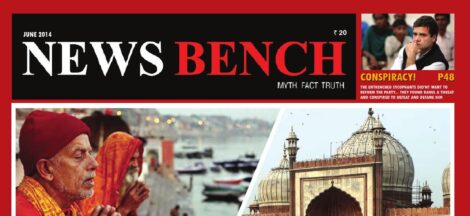By
Amritananda Chakravorty
The
Parliament has passed the Constitution (One Hundred and Twenty-Fourth)
Amendment Bill, 2019, which sought to amend Articles 15 and 16 of the
Constitution, by providing 10 per cent reservation in the public employment and
higher education for the economically weaker sections. The economically weaker
sections would be determined by the State keeping in mind the family income and
other indicators of economic disadvantage. The Bill received the Presidential
Assent on 12th January, 2019 and has become the law now. Thus, in one stroke,
this Government changed the complete spirit and ethos of the reservation
policy, which till now meant to redress the historic caste-based oppression in
India.
The
Statement of Object and Reasons stated that “at present, the economically
weaker sections of citizens have largely remained excluded from attending
the higher educational
institutions and public
employment on account of their financial incapacity to
compete with the persons who are economically more privileged. The benefits of
existing reservations under clauses (4) and (5) of article 15 and clause (4) of
article 16 are generally unavailable to them unless they meet the specific
criteria of social and educational
backwardness.”
It
is argued that this law would not survive the judicial scrutiny, since it is
against the plethora of Supreme Court judgments that there has to be evidence
of economic backwardness, after conducting proper scientific studies. In this
case, the Government did not conduct any public consultation even on the merits
of the Bill, or the need for such reservation, let alone doing proper studies.
While
the Bill provides for reservations for ‘economically weaker sections’, the
Constitution does not recognise any such category; it only provides reservation
for scheduled castes and scheduled tribes, and socially and educationally
backward classes. There is no category of ‘economic backwardness’ in the
Constitution.
The
Supreme Court in Ram Singh & Anr. V. Union of India (2015) 4 SCC 657, while
striking down the Government notification providing reservation to the Jat
community, held that “the backwardness contemplated under Article 16(4) is
social backwardness…Educational and economic backwardness may contribute to
social backwardness. But social backwardness is a distinct concept having its
own connotations”. The Court further held that the data to be used has to be
contemporaneous and not outdated, otherwise accurate parameters for measuring
backwardness would not be formed. While elaborating on ‘backwardness’, the Apex
Court noted that “backwardness is a manifestation caused by the presence of
several independent circumstances which may be social, cultural, economic,
educational or even political”.
There
is no doubt that the Court’s yardstick of ‘social backwardness’ is not
applicable in the case of poor upper castes. Reservation in public employment
and public education was envisaged as a means to uplift the historically
marginalised and oppressed castes like Dalits, and then OBCs, but not as a
poverty alleviation program. It was a redressal mechanism for the horrific
caste atrocities like untouchability, or the systemic exclusion of dalits from
the education and employment. It was never meant to have income/economic
criteria, and constitutionally impermissible to do so.
The
Bill further violates the Constitution, since it is sought to add 10 per
cent to the already existing cap of 50
per cent on reservation, which is
against the Supreme Court decisions that no reservation can exceed 50 per
cent of the total seats/posts. The
Government further has stipulated an income criteria of Rs 8 lakhs as annual
family income, i.e., those who earn less than Rs 8 lakhs per year would be
eligible for reservation (i.e. Rs 2300/ per day), which is a huge farce, since
the BPL (‘below poverty line’) criteria stipulates that a person earning Rs
32/per day is not ‘poor’.
In
conclusion, this is a vile attempt by the Government to dismantle the
‘caste-based’ reservation and to make it income driven, in order to erase the
very basis why the reservation policy was incorporated in the Constitution. It
wants to alter the reservation structure, wherein the centuries old caste
oppression is deliberately ignored, and an abstract and convenient criteria of
‘economic backwardness’ is invented, in order to grant the reservation benefits
to the forward castes. The Court cannot allow this to happen. The Constitution
does not permit too. The Bill ought to be struck down soon. (IPA Service)
The writer is
a leading human rights lawyer
The post Ten Per Cent Quota Decision Violates Constitution appeared first on Newspack by India Press Agency.


